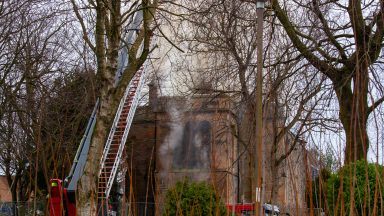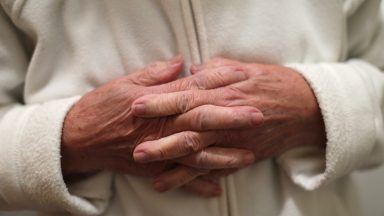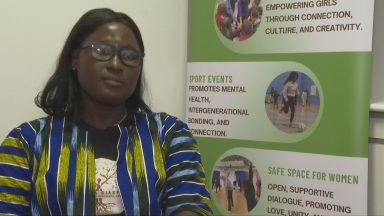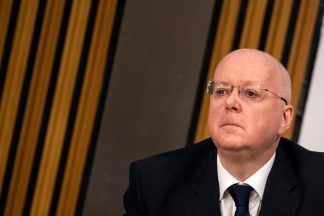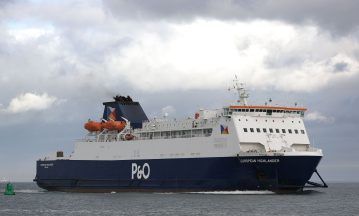Housing children who are seeking asylum or are homeless in hotels can be dangerous and “exacerbate trauma”, a new report has warned.
Scotland’s Children’s Commissioner said youngsters must not be housed in unsuitable accommodation such as hotels, hostels, B&Bs, cruise ships or barges because it may violate their human rights.
The report said children in the asylum system have spent increasing amounts of time in hotels “as a direct consequence of a series of UK Government legislative and policy decisions which disregard human rights”.
While the UK Government has announced plans to cut the number of hotels used to house migrants, the report said many refugees and asylum seekers are being required to share rooms, or being moved into other similar forms of accommodation such as barges or camps.
One young person housed in a hotel said: “Sometimes I feel like I am in prison. I do not know anywhere around me, sometimes I take a walk to ease the tension as there are no other young people in the hotel that I can talk to.”
The report also noted more children experiencing homelessness are being housed in temporary hotel-type accommodation by local authorities due to a lack of suitable alternatives.
Titled Sometimes I Feel Like I Am In Prison – Placing Children In Hotel-type Accommodation, the report makes a range of recommendations to minimise and mitigate the harm it says such environments can cause.
Nicola Killean, the Children and Young People’s Commissioner Scotland, said: “Our starting point is always that no child should have to live in a hotel, or hotel-type accommodation – they are totally unsuitable and violate a wide range of children’s rights.
“Hotels are not a luxury option. They can be dangerous, exacerbate trauma and cause long-term harm to health and development.
“Our report recommendations are for public authorities and accommodation providers to follow to ensure that they comply with their human rights duties to children. The recommendations can also support front-line workers to advocate for children.
“Risk assessments and children’s rights impact assessments must be done when placing children as well as for all children currently in hotel-type accommodation to help minimise the negative impacts.
The child’s rights to safety, health, education, development and many more must be taken into account.
“Human rights are universal. They apply to all children without exception, whether a child is born here or moves here.”
The report said in the asylum and homeless systems, “children are experiencing significant periods in environments which can be actively dangerous, exacerbate trauma and cause long-term harm to health and development”.
It recommends that if a child does have to stay in a hotel, the accommodation must meet the necessary standards to provide them with an adequate standard of living, taking into account their rights to education, play, health, privacy, family life, safety and development.
One young person living in hotel accommodation questioned for the report said: “I did not have my own room; I did not see other children. I was very lonely and scared.”
Yvonne Blake, co-founder of Migrants Organising for Rights and Empowerment, said: “Hotel-style accommodation will always be wholly inappropriate, discriminatory, and unsuitable for children and young people.”
UK immigration minister Robert Jenrick last week announced that the number of hotels used to house migrants will be cut by 50 over the next three months and said the plans are possible because of “the progress we’ve made to stop the boats”.
The report incorporates analysis and conclusions from two expert research papers compiled on its behalf and also draws on lived experience from refugee and asylum seeker children, young people and their families.
The UK and Scottish governments have been asked for comment.
Follow STV News on WhatsApp
Scan the QR code on your mobile device for all the latest news from around the country









